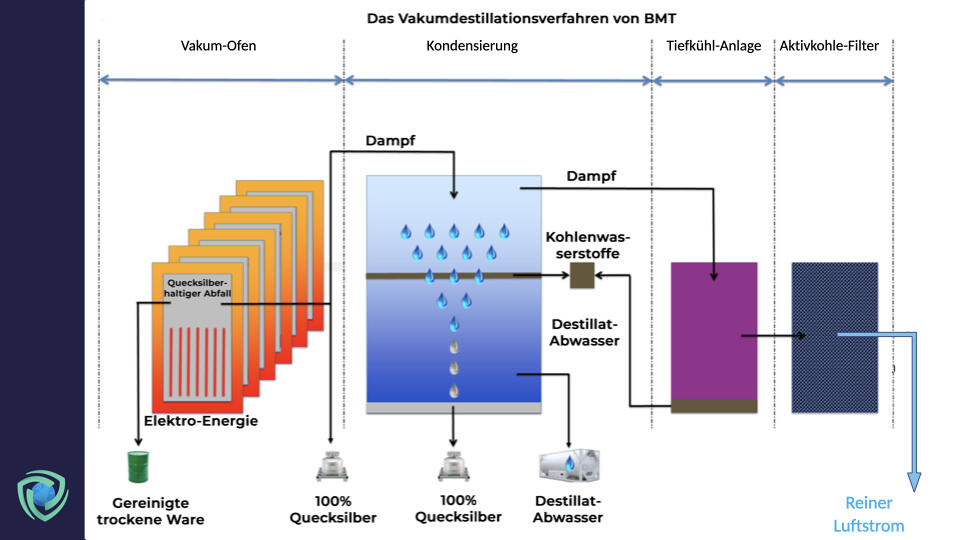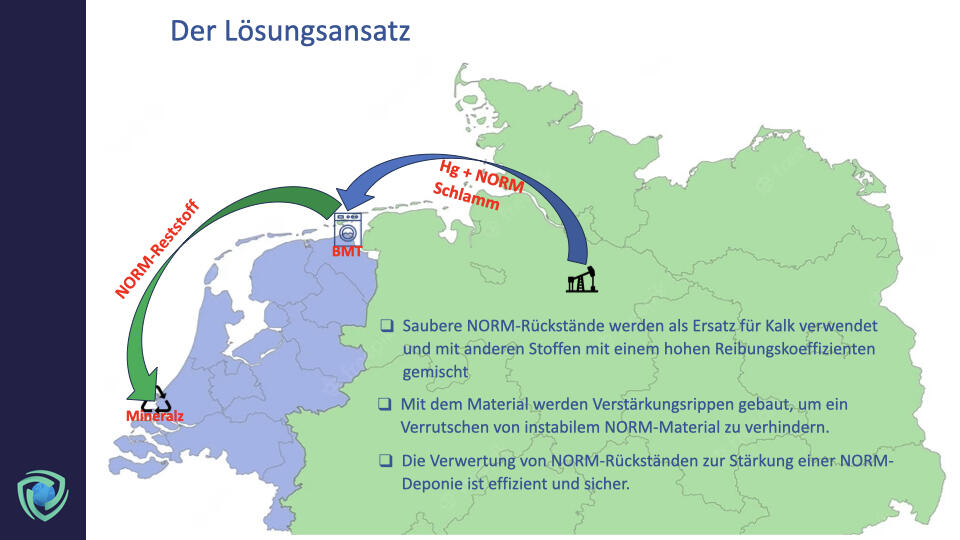How can sludge containing NORM and mercury be disposed of safely and sustainably?
THE DISPOSAL OF CONTAMINATED SLUDGE IS DIFFICULT AND PERMANENT ON-SITE STORAGE IS NOT SUSTAINABLE. THE DUTCH BMT TAKES A DIFFERENT APPROACH.
During the extraction of oil, gas or geothermal energy, sludge containing mercury and various organic substances reaches the surface. In many cases, the sludge also contains contamination with radionuclides of natural origin (Ra-226/Pb-210/Po-210/Ra-228).
Disposal of the sludge is problematic, as it is hazardous waste that must be disposed of in suitable landfills, depending on the acceptance conditions. Permanent storage on site is not a sustainable solution. The wastewater produced when cleaning pipelines is similarly contaminated, making its disposal problematic. Social awareness of these problems continues to grow, increasing the pressure on organisations to find a sustainable solution.

The vacuum distillation process from BMT. Source: BMT/B. Zonnenberg

BMT’s approach to the reprocessing of contaminated sludges. Source: BMT/B. Zonnenberg
BMT has been cleaning mercury-containing sludge, which is often also NORM-contaminated, for its Dutch customers since the 1990s. To do this, it uses a vacuum distillation process in which mercury, carbons, water and the solid components contained in the sludge are separated from each other. The mercury is then converted into mercury sulphide and used as a reinforcing material in German salt mines. The distillate, which contains carbon and other substances, is disposed of and incinerated at very high temperatures to prevent the harmful residues from being released into the environment. The clean dry residue that remains is NORM contaminated. Depending on the radioactivity contained in the clean dry residue, it is disposed of in a NORM landfill or packaged and stored permanently at a site subsidised by the Dutch government.
When BMT received a request from Germany in 2022 to clean sludge with the same properties as sludges supplied from the Netherlands by other organisations, the search for a safe, sustainable and complete solution for German organisations began.
Residues must be returned to the country of origin
Since the Basel Convention stipulates that residues from waste must be returned to the country of origin after treatment, the difficulty arises that BMT can purify sludge from Germany, but the NORM residues must be returned to Germany for disposal. However, as this is not a solution to the problem, the possibility of using the NORM residues as construction material to strengthen the Dutch NORM deposit was investigated. By mixing NORM residues with other materials that have a very high coefficient of friction, it is possible to reuse the material so that it does not have to be sent back to Germany. In the summer of 2023, the Dutch government granted permission to import such material and use it as reinforcement material for the Dutch NORM deposit.
* Bart Zonnenberg BMT Europe BV, Farmsum, Netherlands